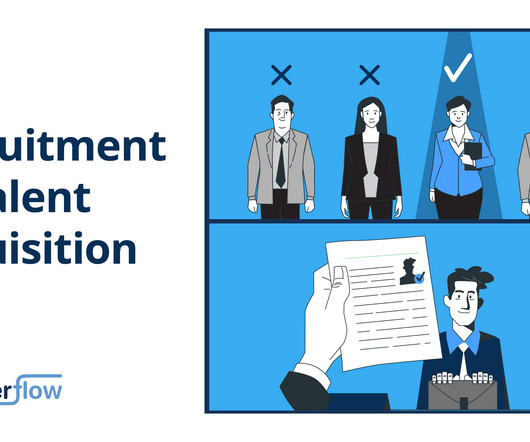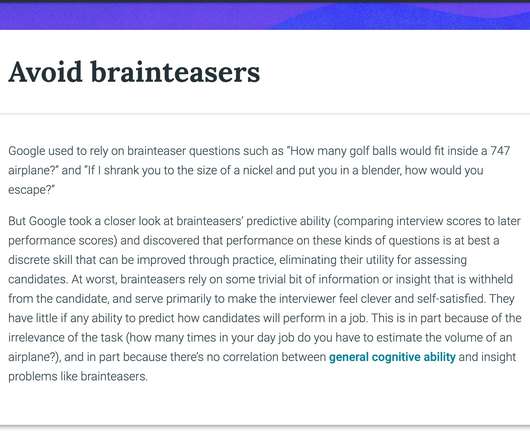How to Answer Emotional Intelligence (EQ) Interview Questions
Workable
JULY 7, 2022
Be sure to choose an example that relates to the job you’re applying for. The complaint could be via social media or a face-to-face meeting. This is a typical behavioral interview question. When describing the scenario, use a professional example rather than a disagreement over a personal matter.



















Let's personalize your content